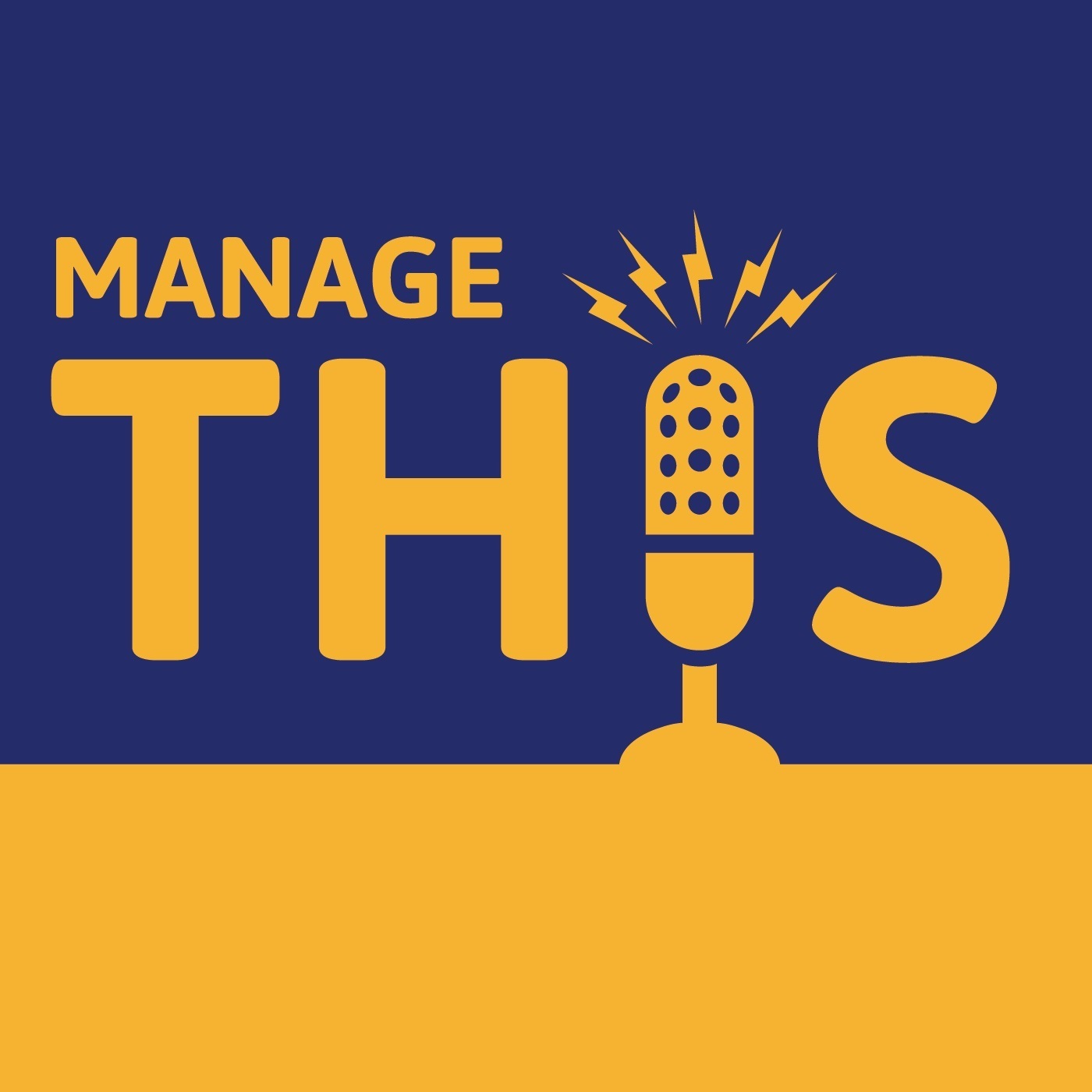

Manage This - The Project Management Podcast
Velociteach
Welcome to Manage This, the podcast by project managers for project managers. Every first and third Tuesday of the month we have a conversation about what matters to you as a professional project manager. Andy Crowe and Bill Yates, both well respected thought leaders in the project management industry, cover subjects such as project management certification and doing the job of project management, as well as get inside the brains of some of the leaders in the industry and also hear your stories. Subject Matter Experts join the cast to discuss topics ranging from advice for someone just starting in project management, leadership tips, to how to manage the unexpected, manage project teams, and much more. Whether you’re a professional project manager, a PMP, or on the road to becoming one, tune in to hear real advice and relevant information on all things Project Management. If you have questions, we have the project management experts to answer them! Claim 0.5 free PDUs per episode.
Episodes
Mentioned books

10 snips
Sep 16, 2024 • 46min
Episode 209 – Succeed with AI in Project Management: Strategies and Skills to Stay Ahead
Oliver Yarbrough, a specialist in using AI within project management, shares insights on how AI is reshaping the industry. He emphasizes treating AI as a key stakeholder, not just a tool. The discussion covers integrating AI in Agile teams, the balance between data security and leveraging AI, and the role of AI in streamlining workflows. Oliver also highlights the importance of human oversight while adapting to AI advancements, ensuring that project managers evolve alongside these innovative technologies.

Sep 3, 2024 • 45min
Episode 208 – Taming Scope Creep: How to Keep Your Project on Track
Shannon Keenan, an expert in project management strategies, joins the discussion to tackle the elusive beast known as scope creep. She shares vital strategies to help keep projects on track, emphasizing the need for structured change management and thorough documentation. Learn how regular project health checks can illuminate underlying issues while nurturing stakeholder relationships is key to managing expectations. Keenan also dives into the balance between innovation and control, ensuring project goals remain in focus.

7 snips
Aug 19, 2024 • 38min
Episode 207 – From Claims to Closures: A Guide to Project Negotiation
The podcast by project managers for project managers. How do successful project managers turn tough project negotiations into win-win outcomes? Discover a practical seven-step approach to managing claims, negotiating with customers, and closing negotiations effectively, offering a competitive edge for project managers handling complex projects.

Aug 5, 2024 • 38min
Episode 206 – Powering Baltimore: Inside the Key Crossing Reliability Initiative
The podcast by project managers for project managers. The Key Crossing Reliability Initiative by Baltimore Gas and Electric (BG&E) is a critical project replacing aging transmission lines across the Patapsco River, spanning 2.25 miles. Managed by Cody Duplisea, PMP, it powers over a million homes and businesses in Baltimore. Completed before the Francis Scott Key Bridge collapse, it gained high visibility for ensuring reliable power transmission.

Jul 15, 2024 • 46min
Episode 205 – Building History: Inside the Guédelon Castle Project
The podcast by project managers for project managers. For the past 25 years, the Guédelon Castle project has been a mesmerizing journey into the past, building a medieval castle in the forest near Paris using authentic 13th-century methods. Sarah Preston details this project where a dedicated team of artisans and history enthusiasts have revived medieval construction practices, with meticulous attention to detail.

Jul 1, 2024 • 32min
Episode 204 – Innovation through Compassion: Creating Happy, Productive Project Teams
Emma Seppälä discusses how team happiness impacts project success and the benefits of a compassionate culture. Topics include stress on creativity, self-awareness vs. self-criticism, showing compassion in the workplace, and the physiological effects of compassion. Learn how cultivating compassion can reduce stress, boost productivity, and enhance team cohesion.

9 snips
Jun 17, 2024 • 39min
Episode 203 –Tap into Hidden Wisdom – How to Ask Better Questions
The podcast by project managers for project managers. This episode explores the art of asking effective questions. Author Jeff Wetzler offers practical advice for improving our skill at asking effective questions. The “Ask Approach" is Jeff’s five-step method designed to enhance anyone’s questioning skills, and he walks us through each step and presents questioning techniques we can all apply.

Jun 3, 2024 • 30min
Episode 202 -Decoding Megaprojects: Insights with Bent Flyvbjerg (Part 2)
Bent Flyvbjerg discusses 'Pixar Planning' and the benefits of standardization and modularity in project management. He advocates for avoiding bespoke projects and focusing on standardized, modular approaches. Examples from shipping containers and advice on making projects more successful by embracing modularity are highlighted in the podcast.

May 20, 2024 • 31min
Episode 201 -Decoding Megaprojects: Insights with Bent Flyvbjerg (Part 1)
Bent Flyvbjerg, expert on megaprojects, shares insights from 16,000 projects. Topics: success/failure patterns, 'iron law,' leadership principles, Caesar's Rhine bridges, 'think slow, act fast,' Guggenheim vs. Sydney Opera House.

May 6, 2024 • 46min
Episode 200 – Sailing Through Project Management: Lessons from the Captain
Captain and author Andy Crowe shares insights on project management and sailing, emphasizing communication, resource management, and planning for obstacles. He reflects on challenges faced, such as broken steering systems and regulatory compliances, highlighting the importance of flexibility and problem-solving. The podcast celebrates 200 episodes and offers a special discount, discussing the parallels between project management and sailing adventures.


